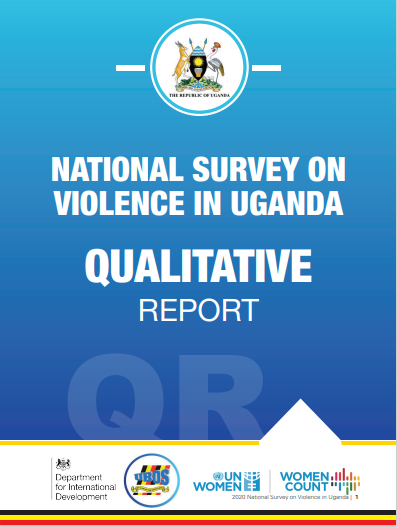
NATIONAL SURVEY ON VIOLENCE IN UGANDA QUALITATIVE REPORT

The qualitative component of the Women’s Health and Life Experiences study was designed to complement the larger survey on prevalence which seeks to generate reliable estimates of the prevalence of different forms of Violence Against Women and girls (VAWG), provide detailed information on the impacts of VAWG, and examine women’s attitudes to violence, how women cope with violence, and the risk factors associated with VAWG. It provides contextual information on women and community perspectives and experiences of Violence against women and girls (VAWG).
Qualitative data were collected to understand the nature, consequences, and patterns of violent situations and to explore and understand the contexts in which VAWG occurs. Data was collected through interviews with female survivors of IPV and non-partner violence, focus group discussions with community members, as well as interviews with key informants, such as representatives from the government, local leaders, and Civil Society Organisations (CSOs) working on this issue.
The study shows that women and girls are at the greatest risk of violence from both their intimate partners and non-partners. VAWG involves a range of physical, sexual and psychological harms, as we’ll as several controlling and coercive practices in a context that is sustained, produced and reproduced within unequal gender relations. Survivors did not experience different forms of violence in silos; rather, many women described experiencing multiple forms simultaneously. All types of VAW/G stem from unequal power relations between women and men. VAW/G is used as a means of controlling and curbing women’s autonomy and sexual behaviour and is perpetuated by gender norms that mediate expectations regarding the roles women and men are supposed to play in the family, community and society at large.